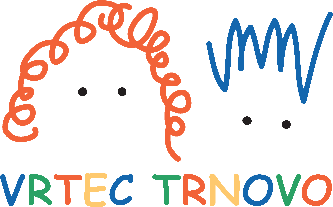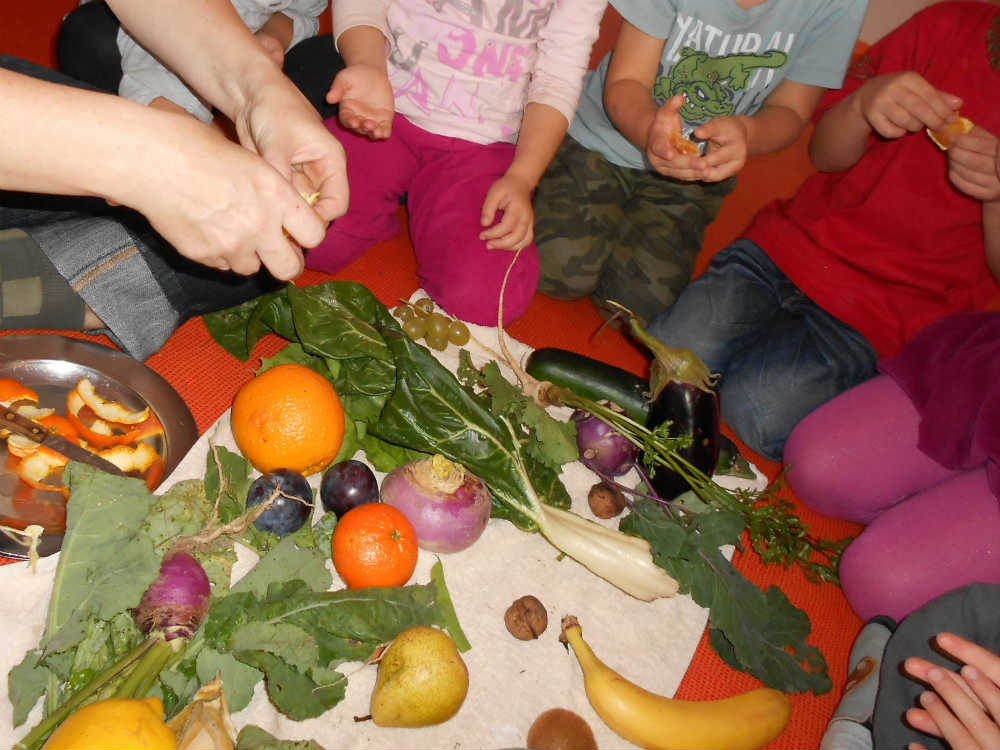Healthy food and the culture of eating are introduced to children in an interesting, intriguing and pleasant manner
In accordance with the National nutritional policy programme and dietary guidelines, we organize healthy meals and devote our full attention to preparing fresh meals every day. For children of the first age group (from 1 to 3 years old), we prepare 4 meals a day and 3 meals for children of the second age group. The variety of fruits and healthy beverages are accessible throughout the whole day for all the children.
For the children with special dietary requirements we provide meals that meet their dietary needs.
Dietary restrictions
By setting an example, we encourage the children to continually improve their eating habits. Respecting family traditions, we create fitting and pleasant conditions to foster a culture of eating (such as setting nice table and encouraging polite manners etc.). We also allow children to choose what they eat and do not force them to eat. We invite the children to help create weekly menus and provide opportunities for them to serve themselves, if they wish. Through rituals, we foster socialisation processes linked to nutrition. We use puppet as part of our Project Work with a Puppet to motivate children and introduce food culture and healthy eating habits through interesting, pleasant and exploratory activities.
To improve nutrition in kindergarten and enhance the quality of our eating culture, we have established a project team. Their priority tasks evolve from year to year. Alongside our nutritionist, the team systematically monitors and analyses the eating habits of the children. We pay special attention to children who occasionally or regularly refuse certain foods. In such case, the team contact the parents to find a suitable solution. Through monitoring and evaluation, the team analyses eating habits in the kindergarten and sets criteria for improvement.
Priority goals within the nutrition in our kindergarten:
- Providing healthy foods (ensuring food safety and the adequacy of their composition in terms of essential nutrients that impact the biological and energy value of foods)
- Creating menus and publishing them on kindergarten’s web page and bulletin boards.
- Supplementing menus with indications of allergens, clearly marked for children with special dietary requirements, and presenting this information to parents on bulletin boards and the website.
- Ensuring four meals per day (covering 70% of daily energy needs).
- Choosing high-quality organic and bio foods, as well as foods without artificial colours and preservatives.
- Providing dietary nutrition to children with health indications, following medical certificates.
- Establishing a group for monitoring children's eating habits (identifying preferences, tracking uneaten food, finding solutions for children with eating difficulties, generating new ideas for menu planning, and collaborating with parents).

